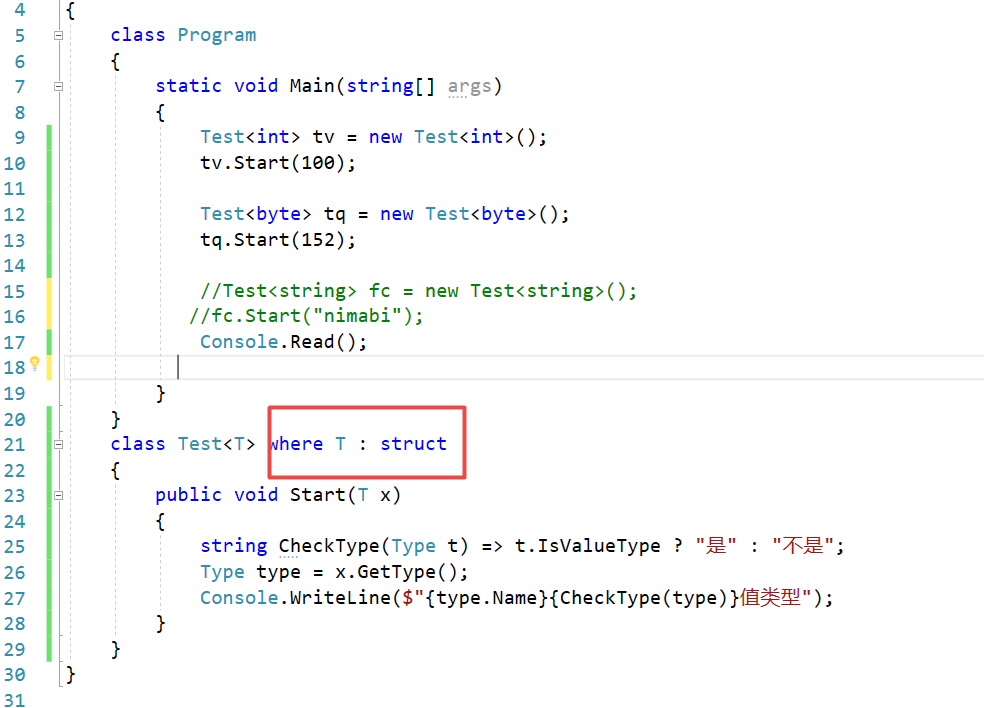C#泛型

泛型,字面意思就是泛泛而谈的广泛形状,就是偷懒的典型。不过,程序员和工程师们,甚至科学家们发明东西并不是完备考虑的,都是线性思维,先发明出来工具,然后有漏洞再弥补。泛型就是为了省力气发明的。副作用我不知道,但是以后肯定有的。

K用string填充 ,就是string类型。


接口泛型
namespace fanxinjiekou
{
class Program
{
static void Main(string[] args)
{
Something1 v1 = new Something1();
v1.OutPut(500, 99.88d);
//Console.WriteLine("Hello World!");
Something2<uint, ushort> v2 = new Something2<uint, ushort>();
v2.OutPut(9009, 17);
Something2<char, string> v3 = new Something2<char, string>();
v3.OutPut('c', "cat");
Read();
}
}
public interface ITest<P, Q>
{
void OutPut(P x, Q y);
}
public class Something1 : ITest<int,double>
{
public void OutPut(int x,double y)
{
WriteLine("{0} - {1}", x.GetType(), x);
WriteLine("{0} - {1}\n", y.GetType(), y);
}
}
public class Something2<J,K> : ITest<J,K>
{
public void OutPut(J x, K y)
{
WriteLine("{0} - {1}", x.GetType(), x);
WriteLine("{0} - {1}\n", y.GetType(), y);
}
}
}
前面的我预言到了,声明:我是第一次学泛型,但是我开头说的被我说中了,就是幺蛾子的事情肯定有。后来就看到书中有泛型约束来了。
就是不能太泛,还要约束一下,唉,约束尼玛啊 ,f*k~~~

约束成功,现在string类型是不可以的

泛型方法:
namespace fanxinfangfa
{
class Program
{
static void Main(string[] args)
{
Sample s = new Sample();
// char
s.DoSomething('z');
// byte
s.DoSomething((byte)5);
// double
s.DoSomething(6.3333d);
// int
s.DoSomething(777);
A xa = s.GetSomething<A>();
B xb = s.GetSomething<B>();
Console.Read();
//Console.WriteLine("Hello World!");
}
}
class Sample
{
public void DoSomething<T>(T p) where T : struct
{
WriteLine("{0}-{1}", p.GetType().Name, p);
}
public T GetSomething<T>() where T:class,new()
{
return new T();
}
}
public class A { }
public class B { }
}




